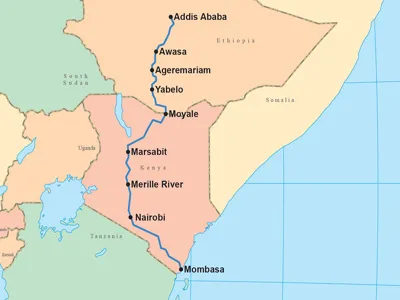Ireland’s government is undergoing a period of belt-tightening, with a string of budget cuts that will directly impact on the transport sector.
The country was in the process of spending heavily on its infrastructure but with the tough economic climate it is now facing, a number of road projects are among those facing the axe.
The Irish government is slashing its infrastructure spending from €39.6 billion to €22.9 billion between now and 2013. This looks likely to result in 40 road projects, including hig
May 14, 2012
Read time: 2 mins
RSSIreland’s government is undergoing a period of belt-tightening, with a string of budget cuts that will directly impact on the transport sector.
The country was in the process of spending heavily on its infrastructure but with the tough economic climate it is now facing, a number of road projects are among those facing the axe.
The Irish government is slashing its infrastructure spending from €39.6 billion to €22.9 billion between now and 2013. This looks likely to result in 40 road projects, including highways and dual carriageways, being shelved or cancelled.
Ireland’s5525 National Roads Authority (NRA) has been told not to build previously planned rest areas along highways, with the
Atlantic Corridor Road linking Letterkenny and Waterford one of only a few projects that will remain in hand.
However, the NRA is planning the M20 motorway that will link the cities of Limerick and Cork.
Planning permission is being sought at present for the 80km road, which will be built in two phases: the first stage will run for around 40km from Kileens to Velvetstown while the second phase runs from Buttevant to Attyfield.
The project is expected to cost €800 million and the NRA hopes to begin construction of the first phase of the road in 2012, assuming that approval and funding can be secured.
Work on the second stage would start after the completion of the first phase in 2015, with the project planned for a completion date in 2018. However, with Ireland’s slow down on its infrastructure investment at present following the financial crisis it is not clear if the M20 project will be delayed.
The country was in the process of spending heavily on its infrastructure but with the tough economic climate it is now facing, a number of road projects are among those facing the axe.
The Irish government is slashing its infrastructure spending from €39.6 billion to €22.9 billion between now and 2013. This looks likely to result in 40 road projects, including highways and dual carriageways, being shelved or cancelled.
Ireland’s
Atlantic Corridor Road linking Letterkenny and Waterford one of only a few projects that will remain in hand.
However, the NRA is planning the M20 motorway that will link the cities of Limerick and Cork.
Planning permission is being sought at present for the 80km road, which will be built in two phases: the first stage will run for around 40km from Kileens to Velvetstown while the second phase runs from Buttevant to Attyfield.
The project is expected to cost €800 million and the NRA hopes to begin construction of the first phase of the road in 2012, assuming that approval and funding can be secured.
Work on the second stage would start after the completion of the first phase in 2015, with the project planned for a completion date in 2018. However, with Ireland’s slow down on its infrastructure investment at present following the financial crisis it is not clear if the M20 project will be delayed.








